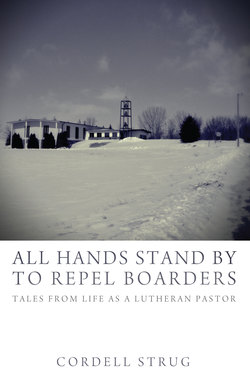Читать книгу All Hands Stand By to Repel Boarders - Cordell Strug - Страница 13
На сайте Литреса книга снята с продажи.
What’s a Nice Philosopher like You Doing in a Profession like This?
ОглавлениеWhen I first studied philosophy, my teacher was a Methodist minister with a passionate commitment to phenomenology and existentialism. Like so many twentieth-century thinkers (not only the existentialists), he gave the impression philosophy only began getting answers in modern times. The negative side of this teaching, of course, was that I had a lot of catching up to do, as well as prejudices to overcome, when I began seriously studying philosophy’s history. (I found it very profitable to read, when I was a serving pastor, Spinoza’s Ethics, which I would have scorned to open as an undergraduate.)
But the positive side of beginning philosophy with a Christian existentialist was that it cast the whole endeavor of philosophy as a way of living, not merely of learning (or, worse yet, unraveling logical puzzles). Not being able to teach philosophy, as I had hoped to do, didn’t mean I lost the point of studying it. You could say the point was sharpened.
In any case, this probably eased my way into working for the church and helped give my life a continuity it might not have had.
My way was eased, from the other side, by my admiration for Christians like Dietrich Bonhoeffer, Thomas Merton, and Daniel Berrigan. At the time, I probably couldn’t have worked for the church if I didn’t think people like that were at the heart of the church. I thought they were leading lives I would have called philosophical (much more so than the academics who called themselves philosophers). These were lives that loved wisdom, sought wisdom, lives that tried to think, act, and feel wisely, lives that paid a price, as Socrates did, for their choices, their activities.
As Socrates did, as Jesus did. Towards the end of my service, I used to say, partly to be provocative but mostly to be honest, that I wasn’t a Christian because I believed God created the world (or that humans had souls or that there was a heaven waiting for good little boys and girls): I was a Christian because I couldn’t get away from Jesus, from the stories he told to snare us in his world, from the stories told of his time in our world.
I don’t think Jesus and Socrates would have had a hard time recognizing each other, or Jesus and Diogenes the Cynic, for that matter. (In fact, John the Baptist, Jesus, and Paul don’t make a bad philosophical trio.) The simple life pictured in the gospels, the scorn of the world’s pomp and glitter, the self-possessed courage before earthly power, the sense that grew among the Christians that they were citizens not of a tribe but of the world, are elements in a life that most of the children of Socrates would find congenial. Paul’s boast in Philippians could have been spoken by many of them:
I have learned to be content with whatever I have. I know what it is to have little, and I know what it is to have plenty. In any and all circumstances I have learned the secret of being well-fed and of going hungry, of having plenty and of being in need. (Phil 4: 11–12)
Given this convergence, I came to think, as I grew older, that the path of wise living wasn’t really that hard to find. It was, as always, living it, wanting it in the first place, that was the problem.
